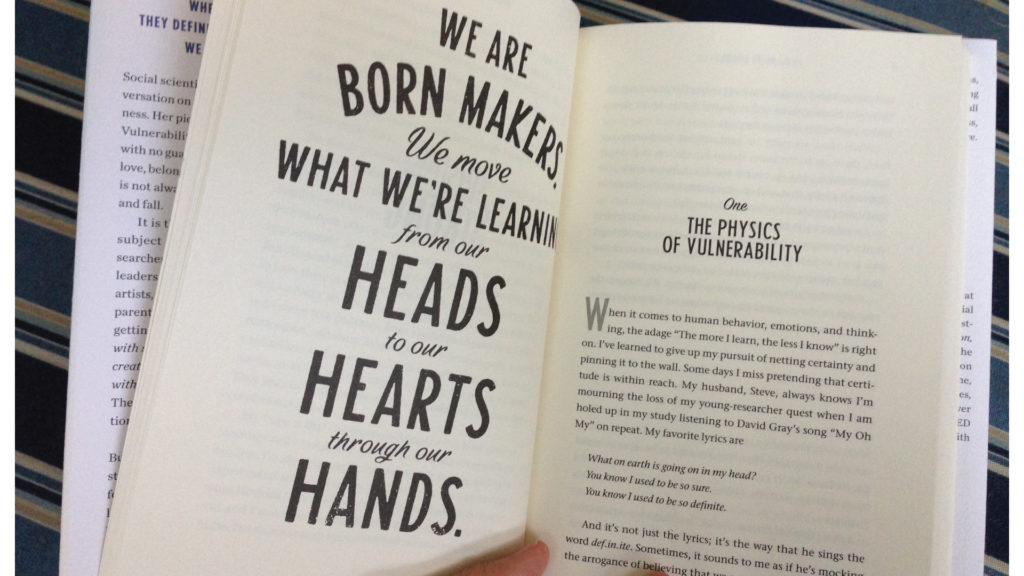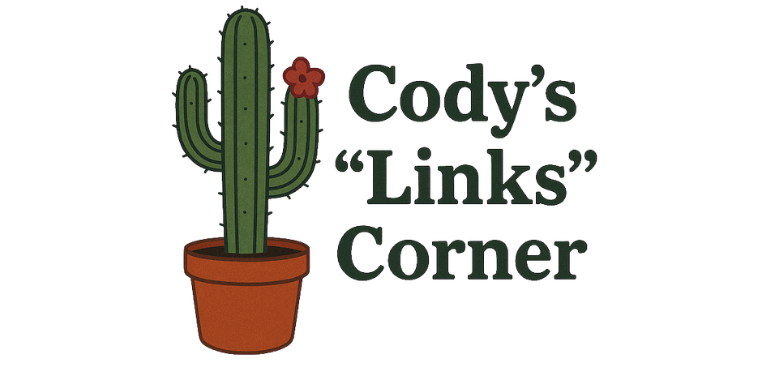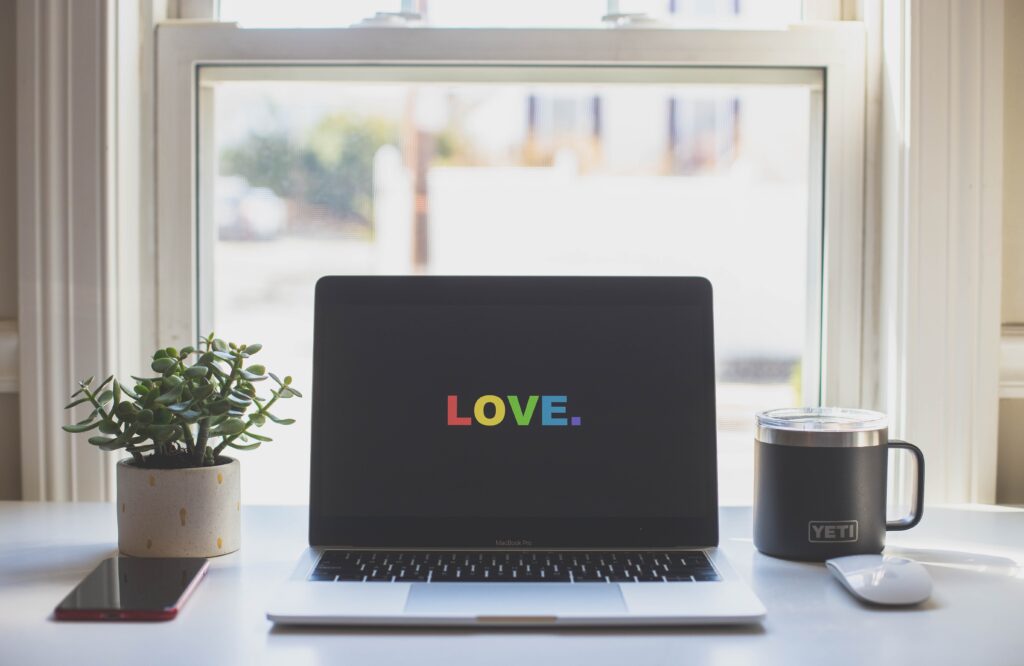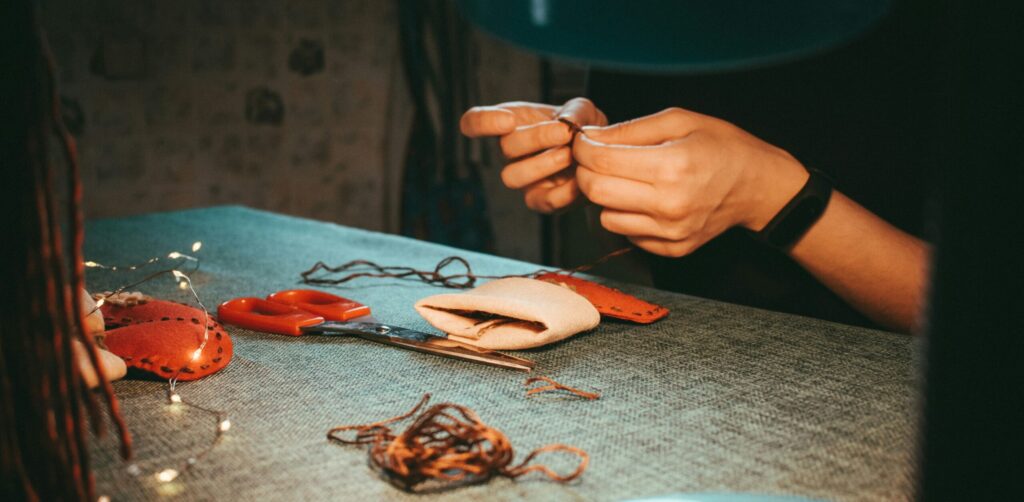Welcome to the comments and discussion of Chapter 1: The Physics of Vulnerability of the book, Rising Strong by Brené Brown! A big shout out to Random House for donating all of our books this time around!
Let’s get started! Chapter 1!
Introduction: Truth and Dare
The introduction actually resonated with me before I even made it to the first page of Chapter One.
Brené says “On a cultural level, I think the absence of honest conversation about the hard work that takes us from lying facedown in the arena to rising strong has led to two dangerous outcomes: the propensity to gold-plate grit and a badassery deficit.”
She describes “gold-plating grit” as the tendency to sanitize our stories of falling into something uplifting and redemptive, while glossing over the painful details and emotional consequences. I feel this happens more often than not when we speak of our cancer experiences. We summarize and move quickly to a more positive ending, leaving out the ugly bits – fear, pain, anguish, heartbreak, weakness, grief, devastation, and more. I believe we do this for multiple reasons – the first of which is sparing ourselves the pain of reliving the hurt again, especially if the experience is still fresh or ongoing. It is also very difficult for us to admit vulnerability, often describing it as weakness in ourselves or our character, so we definitely don’t want to voluntarily share it with others. As Brene suggests, we feel too much shame to let others see the intimate process of overcoming hurt. I think we also do this to spare our loved ones from their own pain of having to watch (often helplessly) while we struggle and fall.
I did this myself with my first cancer diagnosis – I was the queen of gold-plating grit. At first I didn’t want to talk about any of it at all and when I finally did, I would move quickly through to end on a high note, skipping all the difficult parts in between. I was finally able to admit something horrible was happening to me, but was not acknowledging the emotional consequences. This felt wrong to me and kept me from rising up and moving on. As Brene says, if we do not acknowledge the real hurt and fear, if we strip the emotional consequences, we remove the qualities that make grit and resilience important – toughness, tenacity, perseverance, knowledge, courage.
Brené also mentions a “badassery deficit”, which I think goes hand in hand with gold-plating grit. Cancer fighters and survivors are often called badass (or kickass, warrior, inspiration, brave, courageous, etc.). But so many of us shun those adjectives and push back, feeling we don’t deserve or haven’t earned those descriptions. I think this happens often when we have been gold-plating grit and are not being honest about our experience with cancer. I agree wholeheartedly with Brene that people standing fully in their own truth despite discomfort and vulnerability are true badasses. I wish more cancer survivors were able to see this about themselves, to see admitting vulnerability and being honest about the difficulties encountered does not make us weak. It is the opposite – a true measure of our strength and courage.
Chapter 1: The Physics of Vulnerability
This chapter discusses Brené’s “rules of engagement for rising strong”. These ten truths are fundamental for being able to get back up after falling or failing. I found myself nodding agreement to just about every word here, but a few sections stood out for me.
I want to be in the arena. I didn’t realize this at first when I was diagnosed with cancer, but it quickly became evident. I couldn’t just sit back and let these awful things happen to me, even when I thought I wanted to or didn’t think I had the energy or strength. I did want to get up, time and time again after being knocked on my ass and kicked while I was down there. I want to be brave. And honest. And open. With myself and those around me.
A lot of cheap seats in the arena are filled with people who never venture onto the floor. This paragraph was more about criticism, cruelty, or other negative feedback, but as a cancer survivor it meant something different to me. As I read this, I was remembering all the times I was told what I “should have” done or how things would be or what I could do to “fix” something, all by people who had no idea what I was going through. This is a good cancer, an easy one. This is nothing to worry about. You’ll be fine. If only you had eaten better before (or did eat better now). You should drink juice and take vitamins. You just need to exercise. I still get worked up when people say these things, whether to me or others (ok…admittedly quite often more than “worked up”). I dare greatly and share my story as often as I can, so I can help others to understand what being in the arena is like.
Once we fall in the service of being brave, we can never go back. Oof…big one. Every cancer survivor I have ever met has, at one time or another, wanted desperately to go back to where they were before the diagnosis. Yet part of being in the arena and rising strong is to realize the place “before” no longer exists…there is no ”back to normal”. This can be a difficult, often devastating realization, something which yet again shoves us to the ground in the arena. But as Brene says, this awareness can also ignite our sense of purpose and our commitment to daring greatly. Walking the line between wanting to go back and moving forward is a fundamental piece of rising strong.
The journey belongs to no one but you; however, no one successfully goes it alone. This was another big one for me. This was a huge hurdle when I was first diagnosed (and continues to be, if I am honest). I saw the diagnosis and resulting emotions as some sort of failure on my part, a weakness or character flaw. The last thing I wanted was to admit I was vulnerable and needed help. But cancer doesn’t really care what we want and I soon found myself at a point where I literally could not get through my daily life without help from others. I was ashamed of needing to ask for help and felt as if those around me would think less of me if I did ask. This was one of the biggest, most important and life-changing lessons I have ever learned…that we all need connection and we all need help at some point in our lives. And asking for help, admitting vulnerability, is not only a strength but can also be a gift to those you seek help from, who have likely been feeling powerless and wondering what they can do to ease your suffering.
Comparative suffering is a function of fear and scarcity. Right after my diagnosis, people would say things to me about how their lives or their trials were nothing compared to mine (this still happens, actually). I always respond by saying something about each of us carrying our own burdens, which cannot be compared. However, I found myself doing the exact same thing when I first started attending support groups or talking to other survivors. You had brain cancer? Well, mine was just breast, no big deal. You had a double mastectomy and four reconstruction surgeries? I only had a lumpectomy. You had 20 rounds of super harsh chemo? I did four of the easy kind. I was dismissing my own experiences, minimizing the hell I was living in. This was a harsh wake-up call for me, to realize our experiences are a matter of perspective and we need to honor our own struggles, no matter what they are.
Courage is contagious. Brené says “rising strong changes not just you, but also the people around you…your experience can profoundly affect the people around you whether you’re aware of it or not.” This has been a large part of my own truth, my own path toward authenticity. I will share my story (or parts of it) with anyone who wants to listen. If one tiny part of my experience can help another person, it is worth every moment and helps us both rise strong. Even if I am not sharing my story out loud, I can still make a difference for others by standing in my own truth and demonstrating how someone can rise strong.
—
Thanks for joining us for our Chapter 1: The Physics of Vulnerability of Rising Strong! Join in next Monday for Chapter 2: Civilization Stops at the Waterline and in the meantime, learn more about the book club commentators!
If you’re just joining us, here are some logistics:
We will talk about a chapter each Monday until the book is done. Then, we’ll use one more Monday to talk about general feelings from the book and anything else you’d like to discuss. Join in, in the comments every week! At the end, we’ll have a book club discussion via video chat! Also, there will probably be spoilers. Read along with us!
How are you enjoying our young adult cancer book club?







